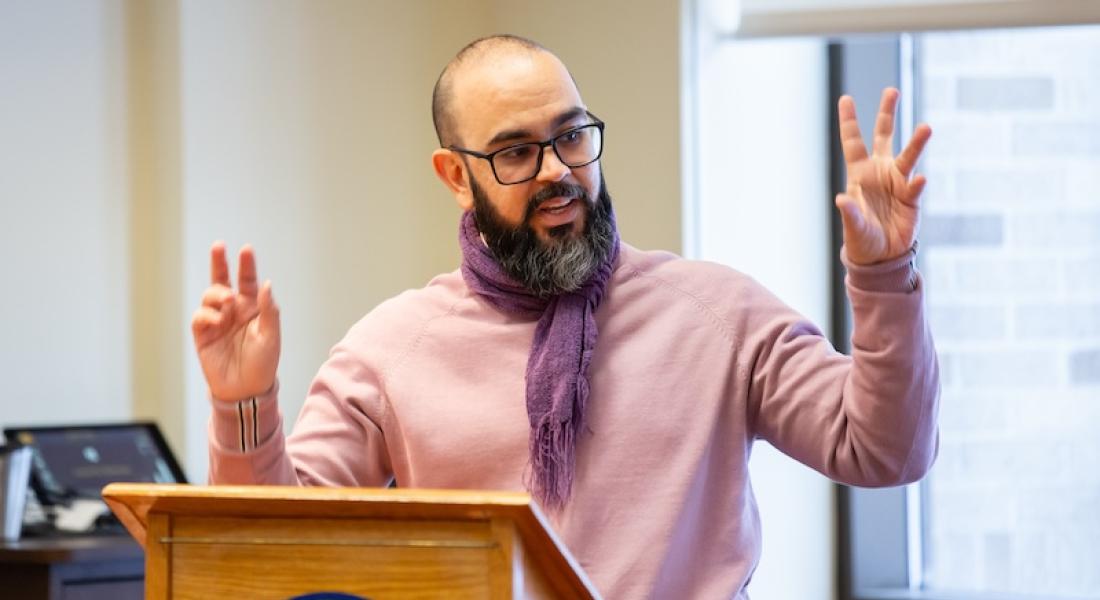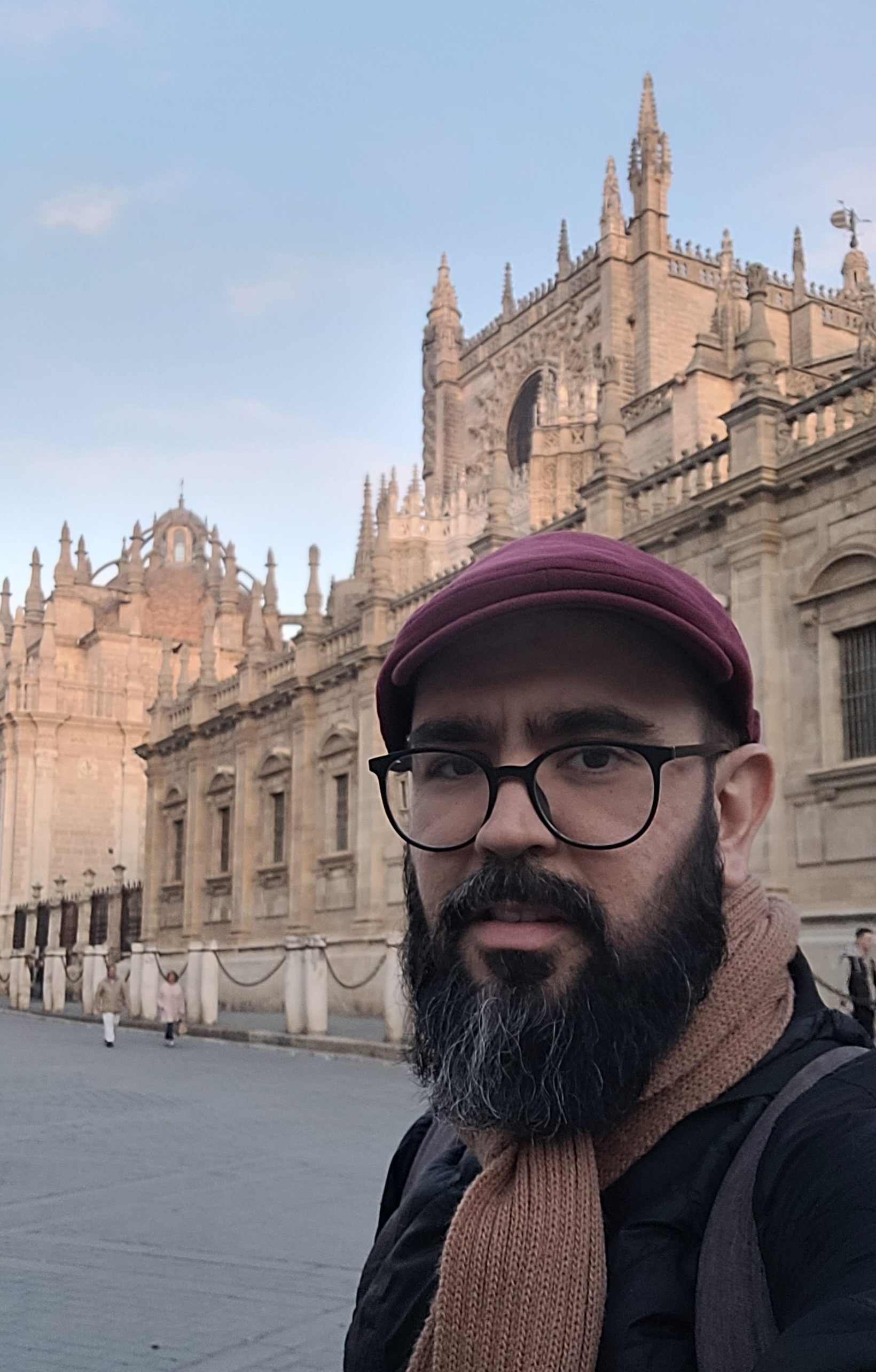
Kellogg Dissertation Year Fellow Eduardo Febres, taking a twist on a popular colloquialism from his native Venezuela, always says he comes from the past in order to warn about the future – a future in which elites talk to themselves in the public sphere but become unable to hear the claims of the wider community and civilization.
With Kellogg’s support, Febres is completing his dissertation in the Spanish program of the University of Notre Dame. His “A Popular Shock to Print Capitalism: The Simón Rodríguez project (1828-1849)” explores both the influences and the limitations of print technology in the context of emerging modernity in Hispanic America and surrounding the time of its independence.
Rodríguez is most known as the mentor of Latin America’s Simón Bolívar, but Febres maintains his focus on how Rodriguez imagined and advanced education and communication, as populism took hold and access to information broadened beyond the nation’s cultural and literary elites.
“Rodríguez believed in enlightenment but didn't allow enlightenment to rely on print technology,” Febres explains. “It was too little too late. It wasn't the Middle Ages anymore, and they were already inhabiting the infosphere that print had built.” There was a disconnect that Rodríguez identified as potentially destabilizing, one in which he was ultimately proved right.
 “You have overly optimistic and overeducated elites writing about or thinking about the world in wealthy and hyper-technological terms, when they didn't even have a way to know what the mass of people were thinking,” Febres notes, “or what they would do and how they behave.”
“You have overly optimistic and overeducated elites writing about or thinking about the world in wealthy and hyper-technological terms, when they didn't even have a way to know what the mass of people were thinking,” Febres notes, “or what they would do and how they behave.”
Rodríguez wanted to ensure engaged communities, stirred to participate fully in civic and cultural life, and he experimented with different models meant to protect education itself from the dangers of rote learning that tended to produce automatons thinking in a rigid uniformity. He sought to harness the power of racial and ethnic diversity in tension with colonial elites. That meant seeking out alternative ways of storytelling and the inclusion of an array of narratives.
“I look at the print objects of this relatively well-known but under-studied author,” says Febres, “to propose an alternative perspective on the challenges that the increasing distance between the educated public sphere, and the illiterate or uneducated masses, are posing to democracy and governance in Venezuela but also in the Americas and beyond.”
Perhaps inspired by Rodríguez, Febres himself remains immersed in how people make their meaning and messages. He was recently awarded an Edward Guiliano Global Fellowship from the Modern Language Association to continue his preservation work at the Yale Digital Humanities Lab. Previously he coordinated “Alerta que salpica” (Ocho Libros, Chile, 2017), a collection of Latin American graffiti and street art, which involved activists and critics from several countries in South and Central America. He also worked at MECHA in Caracas, a worker-owned visual arts cooperative that prioritizes low-income and youth participation.
Febres also has served as editor of a street art book and coordinates Alawit, a website for Afro-Latin writers. At Notre Dame, he’s affiliated with the Environmental Humanities Initiative and the Initiative for Race and Resilience, as well as the Kellogg Institute.
“Eduardo’s busy completing his dissertation but still cares so deeply about the community of scholars here at Kellogg,” said Lupe Ramírez, Senior Program Manager of Visiting Fellowships and Graduate Student Affairs at Kellogg. “His work is nuanced and a bit off the beaten path of Kellogg’s usual research subjects, yet it’s prescient and speaks to the political moment in which the nation, and others, find themselves.”
Febres said despite the niche in which he works, he benefits from the engagement with other Kellogg scholars. “Beyond the time to work on my dissertation, Kellogg offers a stimulating challenge because every aspect is placed into narrative with the community here,” he said.





